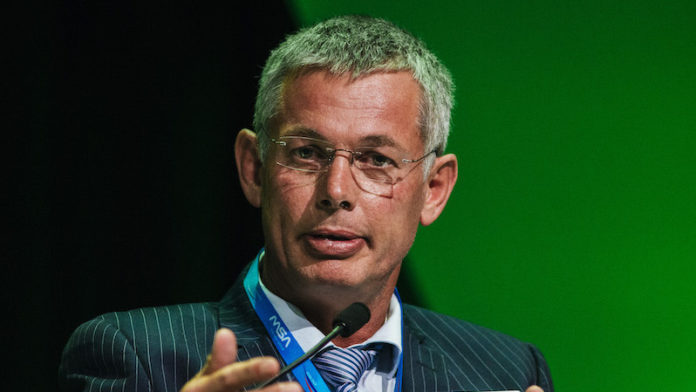
IMPALA Platinum (Implats) may backtrack on an agreement with unions and the department of trade and industry not to restructure shafts bought in last year’s takeover of Royal Bafokeng Platinum (RBPlat).
Now known as Impala Bafokeng, the RBPlat assets are losing money, partly because the new Styldrift mine is operating at 70% of productive capacity despite being “resourced” at 100%. It would take 18 months to two years to bring Styldrift up to full capacity of about 300,000 ounces of platinum group metals (PGMs) a year.
Implats CEO Nico Muller said his company might have no option but to consider restructuring at Impala Bafokeng.
“For very important reasons we gave undertakings to keep the shafts separate,” he said at Implats’ interim results presentation today. “And then the metal price drops by 40%.
“Once we go through all the optimisation, the question is: does that prohibit from talking about potential integration and cutting duplicate services?
“I tried to find reasons why we can’t talk to it. But surely, faced with the option of closing something permanently or talking to parties, [talking] is an option that must be retained by all the parties. Therefore, it is a potential option that is on the table,” he said.
Muller posed the rhetorical question of how much amount of negative cash flow could be tolerated while Styldrift was struggling? “And the answer is not much …,” he said. “So to reposition Styldrift is entirely required to make sure we don’t expose ourselves to closing the operation,” he said.
Muller is already facing the early closure of Implats Canada where the Lac des Iles mine is producing palladium and platinum at an all in sustaining cost way above revenue. In another strategic disappointment, he also said the group had effectively ditched plans to diversify.
“A strategic response is required to reverse the cash flow trend,” he said of negative free cash flow of R4.8bn in the six months ended December.
“On our appetite for investment in general, it has contracted significantly. Our aspirations to diversify, that is on hold. Our appetite for the Waterberg project is very low. We would have to see a very strong price environment to alter our view,” he said.
Muller said last year the company was in the early stages of weighing up diversification into battery metals such as copper or nickel. While stopping short of saying it was a priority, he spoke of the need to derisk the company against the impact of electric vehicle production on autocatalyst demand which PGMs supply.
The Waterberg Project is a palladium-rich prospect in Limpopo province. Implats has a 15% stake in the project which is controlled by Canada’s Platinum Group Metals. Implats has said before the project is low on its priority list.









